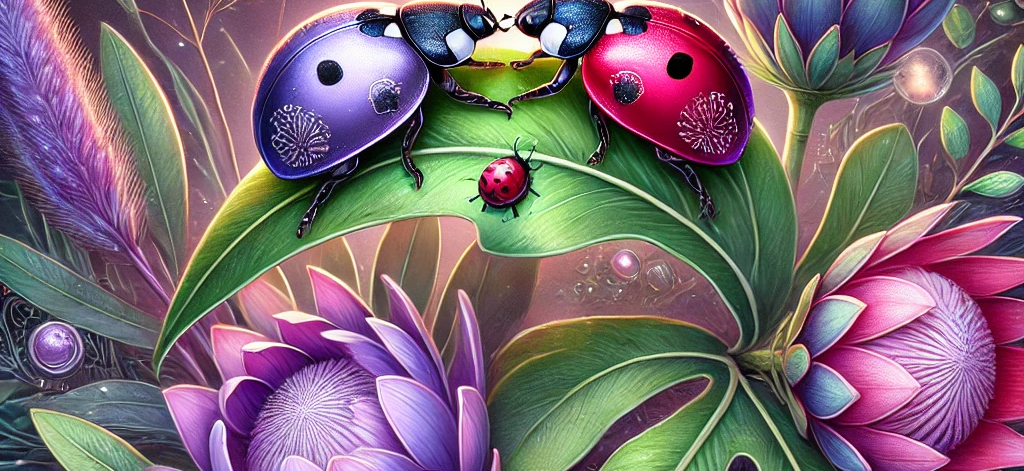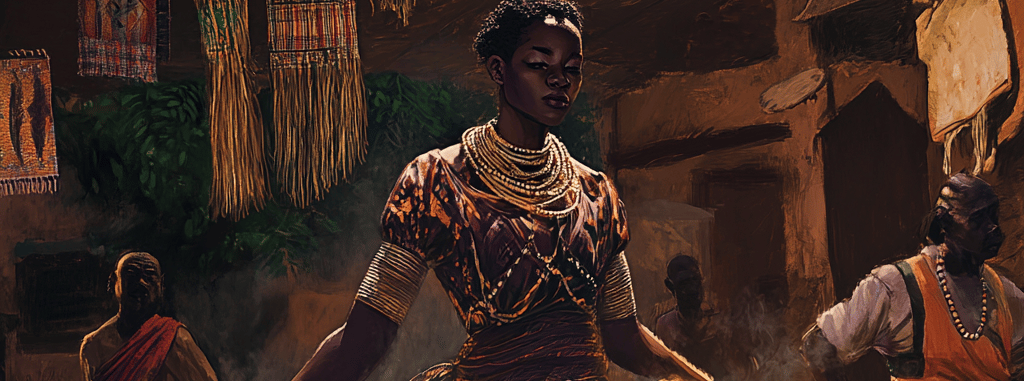Afromantasy: The Future of African Mythical Storytelling and the Reclamation of Africa's Lost Narratives
In the vast vistas of African storytelling, there exists an untapped goldmine, a realm where mythology, history, and fantasy converge into something new, bold, and wholly African. Afromantasy, a groundbreaking genre, is the bridge between Africa's forgotten past and its limitless imaginative future. For centuries, the mythologies of West, Central, East, and Southern Africa have been diluted, erased, or rewritten through colonial narratives. Our gods and deities, once forces of nature and divine wisdom, were demonised. Our ancestors, who shaped history, were reduced to footnotes. Even today, in the global fantasy landscape, African myth remains either marginal or misunderstood. But now, the tide is turning.
What is Afromantasy?
Afromantasy is not just African fantasyâ€- it is the reclamation of African myths, legends, and cosmologies through storytelling that centres African perspectives, decolonises fantasy, and introduces audiences to the vast mythic universes that have existed across the continent for millennia.
It is a genre of power. A genre that gives the forgotten, erased, or ignored histories of African civilisations a space to shine. A genre where Orishas, Bori spirits, Nkisi, and ancient gods walk again, not as relics, but as forces shaping new stories and reshaping the old ones.
It is also the bridge between Africa’s storytelling heritage and the global fantasy genre, an answer to the oversaturation of European mythology in fantasy literature.
Why Afromantasy is Critical to Africa's Mythical Storytelling Renaissance
The Power to Reclaim What Was Lost
African mythology is not just about gods and spirits; it is about philosophy, morality, society, and power. From the Yoruba Orishas and Igbo Alusi to the Lozi sky gods and the rain queens of Southern Africa, our mythologies have long explained the origins of the world, the balance of power, and the meaning of existence. Yet, these stories were often dismissed, rewritten, or erased. Afromantasy revives them. It does not just retell old myths; it reclaims them from the lens of colonial distortion and places them back where they belong, as the foundation of entire fantasy worlds. It allows readers to experience the grandeur of Mali at its peak, the forgotten legends of the Kongo Kingdom, and the untold heroism of the Amazons of Dahomey not through dry history but through epic, immersive storytelling.
African Deities Deserve Their Seat at the Fantasy Table
Why should the world know Thor and Zeus but not Nyame, Chukwu, Olodumare, or Kalunga? Why should dragons and elves dominate fantasy when Africa's folklore is filled with its own beings? Mami Wata, Abiku spirits, Adze vampires, and talking animals that hold the wisdom of the ancestors?
Afromantasy does for African deities and spirits what Western fantasy has done for Norse and Greek mythology: it makes them global. It makes them living, breathing figures in new worlds, new struggles, and new narratives that feel fresh, thrilling, and urgent.
It Expands the Fantasy Genre Beyond the Eurocentric Mould
The fantasy genre, as we know it, is overwhelmingly European in structure, themes, and world-building. The “medieval kingdom†fantasy aesthetic dominates, erasing the splendour of African civilisations that flourished at the same time or even earlier than their European counterparts. Afromantasy shatters this mould.
It brings forth:
Kingdoms beyond castles and knights from the stone cities of Great Zimbabwe to the forest empires of Benin. Magic is rooted in indigenous belief systems, from Ifa divination to the rainmaking rituals of the Zulu. Wars that reshape history from the battles of Shaka Zulu to the rebellions of Queen Nzinga.
The Stories Are There. They Just Haven't Been Told Yet
There is no shortage of epic love, tragedy, heroism, and cosmic battles in African storytelling. What has been missing is the global platform to tell them.
Where are the great fantasy epics based on:
The love and war between Shango, Oya, and Oshun? The gods' courtroom battles over human destiny and cosmic justice? The ancient wars between the sorcerers of Timbuktu and the shape-shifters of the Sahara?The forgotten goddesses and warrior queens who ruled the spirit world and the physical realm? Afromantasy is about taking the bones of these stories and breathing new life into them without compromising their power, their truth, or their deep African essence.
It Gives Africa's Lost Heroes and Legends New Life
Beyond deities, Afromantasy also revives the unsung heroes of African history. It turns them into the protagonists of grand sagas that honour their achievements:
Queen Amina as the warrior queen of an empire built on magic and steel, Patrice Lumumba and Thomas Sankara as tragic, mythic figures in the fight for a destiny stolen. The Igbos who walked into the ocean rather than live in chains, their spirits rising again in the tide. Through Afromantasy, history is no longer just a textbook; it is a living, breathing, legendary saga.
The Future of Afromantasy: Where Do We Go from Here?
Afromantasy is more than a genre; it is a movement. It is the Afrofuturism of fantasy, the African mythology renaissance, and the world-building revolution that finally gives Africa its due in the grand storytelling tradition. For African storytellers, it is a call to action. For African readers, it is a homecoming. For the world, it is an invitation to witness the power of African fantasy, mythology, and history intertwined. This is only the beginning. Afromantasy is here and it is unstoppable.




